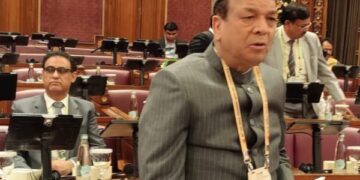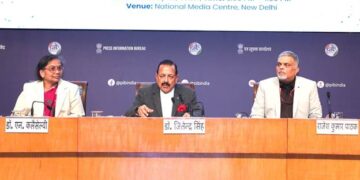Srinagar: The High Court of J&K and Ladakh on Friday imposed cost of Rs 20,000 on two villagers from Pattan areas of north Kashmir for concealing facts in a writ petition against Kashmir Power Development Corporation Ltd (KPDCL) with regard to laying of 32 KV line near their “residential houses”.
Fayaz Ahmad Ganie and Abdul Majid Dar, two middle-aged villagers from Palpora, Palhalan, Pattan, had filed the writ petition against KPDCL alleging derogation of rules, compromising safety of the petitioners and their families.
They had sought a commandant directing the respondents to stop the work of laying the proposed 32,000 KV line near their residences in the village. They also prayed for realignment and reroute of the line along the national highway where the existing 11KV line is already erected.
The government advocate, however, argued against the duo alleging “they have not come before this court with clean hands and have suppressed the material facts. The matter is already pending disposal before the Sub-judge Pattan, and the petitioners have concealed this fact before the High Court.”
With a view to fortify his claim, he produced a copy of the suit already filed by the petitioners along with others, before the trial court involving the same subject matter.
Justice Wasim Sadiq Nargal after hearing the contending counsels of the parties and perusing the record held “the plaintiffs (villagers) are misconstruing the trial court orders and are unnecessarily creating hurdles in the work of argumentation of the HT line from Palhallan receiving station.”
He found the counsel for the petitioners could not satisfy the High Court as to why the factum of filing of suit has not been disclosed in the writ petition.
The bench said that the petitioners have all along been agitating their case before the trial court in the suit preferred by them, which is pending as on date. “The petitioners without waiting for the outcome of the said suit or even specifically disclosing the factum of filing of the same as also without placing on record the orders passed by the learned trial court in the said suit from time to time, have chosen to file the instant writ petition, which falls within the realm of abuse of process of court.”
It said “the petitioners have abused the process of court and have come to this court with unclean hands, with the sole object of getting an interim order, for which petitioners are required to be burdened with costs.”
The court said that the omission on part of the petitioners is not a mere oversight, but a deliberate attempt to withhold material information that could potentially influence the court’s decision.
“The failure on part of the petitioners to disclose the factum of filing suit before the trial court is a material fact that goes to the very foundation of the case of the petitioners. Such non-disclosure on part of the petitioners not only falls within the realm of misleading the court, but also raises serious questions about the credibility of the petitioners’ claim in the instant petition,” it added.
It further said that the petitioners have engaged themselves in a conduct by representing a writ petition before the High Court, without revealing the fact of earlier proceedings filed by them. They have relied on false and flimsy grounds which tantamount to fraudulent misrepresentation.
The court made it clear that the act of concealing a significant fact from the court amounts to an attempt to mislead the judicial process, thereby violating the principles of good faith and transparency, which actually govern the legal proceedings.
“The petitioners’ conduct clearly constitutes an abuse of the legal remedies and the deliberate misrepresentation of facts, with an intent to deceive the court. Their actions are designed to mislead the court and obtain a favourable order/judgement by suppressing the material facts, which is a serious legal and ethical violation of the fundamental principles of justice and fairness,” the court said.






